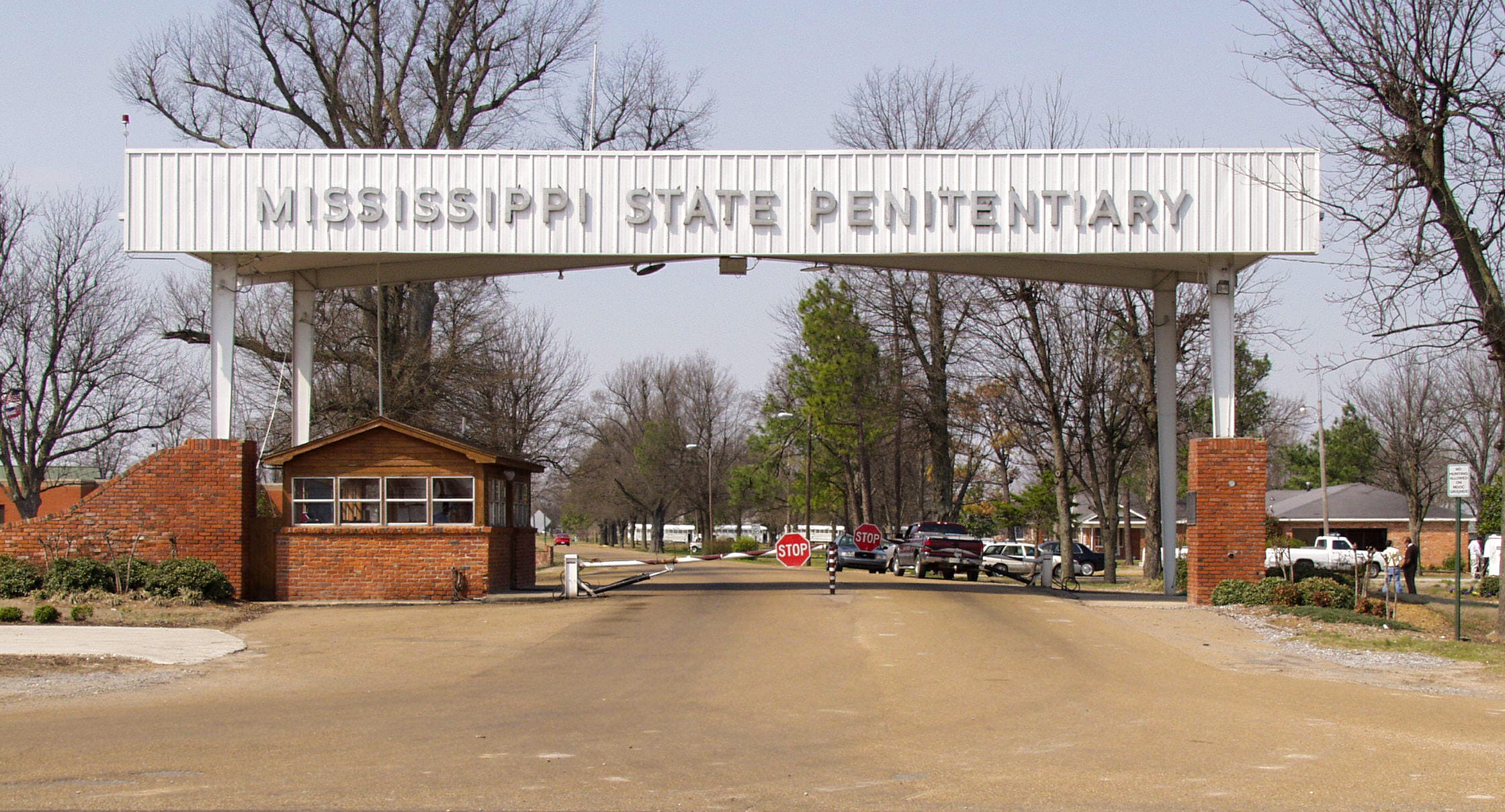
Criminal Rehabilitation and Justice in Mississippi
What is the scope of crime and incarceration in Mississippi? How many people are incarcerated in the state, and how does the state improve its criminal justice system? This article briefly summarizes crime and justice in Mississippi.
Prison Population Statistics in Mississippi
How many people are incarcerated in Mississippi? What are the biggest prisons in Mississippi? Answering these questions provides rapid insight into the scope of Mississippi’s criminal justice system. According to the Bureau of Justice Assistance, Mississippi has the highest incarceration rate in the nation, imprisoning 584 residents for every 100,000 people living there. For comparison, the overall U.S. incarceration rate is 358 people in jail for every 100,000 residents. The next-highest incarcerating state behind Mississippi is Louisiana, which incarcerates 581 residents for every 100,000 people living there.1
Reviewing data from the National Institute of Corrections, Mississippi has 89 jails in 92 counties. Its jail population in 2019 was 14,340. Mississippi also operates three state prisons that hold approximately 19,417 inmates. The state also has a community corrections system, with 28,458 people under probation and 10,432 under parole. Mississippi runs its corrections department with a staff of about 2,000 employees. It’s also worth mentioning that the National Institute of Corrections estimates Mississippi’s incarceration rate at 636 per 100,000, much higher than the Bureau of Justice Assistance estimate cited above.2
Mississippi has about 16% of its prisoners locked up in private prisons. While efforts are being made to phase out private prisons in Mississippi, this work could be faster. In the year 2000, there were 3,230 people locked up in private prisons in Mississippi. In 2019, there were 3,139 people incarcerated in such prisons, just a 3% drop.3

Image courtesy of www.mdoc.ms.gov
There are two private prisons and four federal prisons in Mississippi. The Mississippi State Penitentiary, located in Sunflower County, is the largest prison in the state, occupying 18,000 acres and capable of housing 4,536 inmates.4
Mississippi Crime Rates
Unfortunately, Mississippi crime rates rose between 2020 and 2021. The Mississippi Violent Crime Report for 2021 recorded a 36% increase in violent crime, with 4,484 reported crimes. That year, Mississippi recorded: 2,897 aggravated assaults, 962 sexual offenses, 473 robberies, and 152 murders.5
It’s worth mentioning that even though Mississippi’s violent crime rate is increasing, it appears the state significantly over-incarcerates its residents, suggesting the incarceration model is not producing effective results (deterring crime and harmful behavior). While Mississippi records about 278 violent crimes for every 100,000 living there, the state incarcerates 636 people for every 100,000, suggesting more than 50% of those incarcerated in Mississippi are serving time for nonviolent crimes. Further, Mississippi’s prison population has been steadily growing, even as crime rates have gradually declined over the years.
What is the Recidivism Rate in Mississippi?
Analyzing the statistical data on recidivism provides a direct view into the workability of Mississippi’s criminal justice system. According to the latest Mississippi Department of Corrections Recidivism Report, the recidivism rate in Mississippi is 35.4%, suggesting the criminal justice system in Mississippi is not working for one-third of those who go through it.6
When one-third of inmates re-offend and are re-incarcerated within 1 to 3 years of being released, the criminal reform methods utilized in those prisons are not working. Recidivism should be used as the defining metric to measure the success of Mississippi’s criminal justice system. The goal should be to reduce recidivism via effective, evidence-based criminal rehabilitation programs.
Criminal Rehabilitation and Alternatives to Incarceration in Mississippi

Criminal reform in Mississippi must be the goal of justice programs. Programs should not seek to punish or dehumanize criminal offenders but rather rehabilitate them. Criminal rehabilitation in Mississippi begins with ensuring inmates have access to programs to help them overcome the criminal inclinations that landed them in prison.
Unfortunately, there is much improvement to be made in Mississippi’s criminal justice system, as the prison population has grown 396% between 1980 and 2022 without reducing crime or deterring harmful behavior among Mississippians. The Mississippi Restoration of Rights & Record Relief project, a branch of a national criminal justice reform effort, is one program designed to help offenders regain rights once they leave prison so they can more effectively reintegrate into society without re-offending. It’s a step in the right direction, but local policymakers and political leaders must step forward to improve conditions for the incarcerated and formerly incarcerated in Mississippi.7
Beyond the traditional carceral model, alternatives to prison in Mississippi should also be encouraged. Unfortunately, the criminal justice system in Mississippi is limited in the scope of incarceration alternatives it offers to offenders. Some such programs include:
- Pre-trial diversion
- Non-adjudicated probation
- A suspended sentence or split sentence
- Drug court for drug possession offenses
- A regimented inmate discipline program
- Restitution center for payment of substantial fines
- Post-release supervision (supervision after an incarceration period)
- House arrest, electronic monitoring, or an intensive supervision program
The above programs have some merit in that they provide alternatives to incarceration for offenders in Mississippi. However, they do not provide a broad enough range of services and rehab modalities to truly help offenders get to the root cause of what led them to commit a crime in the first place.
Educational programs inside prisons in Mississippi should be encouraged and implemented, as should rehabilitation programs inside prisons in Mississippi. Only by improving the lives and livelihoods of offenders will Mississippi create lasting improvements in reducing crime, increasing safety, and improving the overall quality of life for its residents.
In summary, Mississippi’s position as the state with the highest incarceration rate in the nation makes it clear that Mississippi has to implement changes to improve its criminal justice system. Quoting Rep. Kevin Horan, Chairman of the House Corrections Committee, “But we got to take a hard look at what we want to do in the poorest state in the nation. The highest incarceration rate, and the highest penalties for some crimes that are the least offensive to our society.” In the future, Mississippi’s success in improving its incarceration system may very well rest on the state’s ability to implement evidence-based reforms and changes in the legal code that shift the state away from incarcerating people for nonviolent, victimless crimes.8
Sources Cited:
- BJS. “Prisoners in 2020 – Statistical Tables.” Bureau of Justice Statistics, 2020. bjs.ojp.gov
- NIC. “Mississippi 2019.” National Institute of Corrections, 2019. nicic.gov
- SentencingProject. “Private Prisons in the United States.” The Sentencing Project, 2019. sentencingproject.org
- PrisonPro. “Mississippi State Penitentiary.” Prison pro, 2022. prisonpro.com
- MSCrimeStats. “Violent Crime 2021: Mississippi.” Mississippi Crime Statistics, 2022. mscrimestats.dps.ms.gov
- MDOC. “Mississippi Department of Corrections Recidivism Report.” Mississippi Department of Corrections, 2018. mdoc.ms.gov
- RRP. “Mississippi Restoration of Rights & Record Relief.” Restoration of Rights Project, 2022. ccresourcecenter.org
- EM. “Reforming Mississippi’s criminal justice system.” Empower Mississippi, 2021. empowerms.org
Related Articles
Criminal Justice Reform Extends Rights to Felons Who Have Served Their Sentences
For decades, voter enfranchisement or disenfranchisement for incarcerated and formerly incarcerated individuals has been debated. An estimated 4.6 million Americans are barred from voting due...
Read more >>
What Is the Scope of Private Prisons in the U.S.?
In 2001, the Federal Bureau of Justice Assistance authored a report analyzing then-emergent issues regarding private prisons in the United States. According to the authors...
Read more >>
How Mississippi Is Changing its Tune on Criminal Justice Reform
Over the last 15 years, Mississippi has passed several criminal justice reform laws to reduce recidivism and provide better results for offenders. In many ways,...
Read more >>
A Lifer Becomes a Criminon Facilitator and Mentor
Thank you for acknowledging me as a Criminon Facilitator. I take great pride in being a part of the Criminon organization. I've been incarcerated since...
Read more >>





